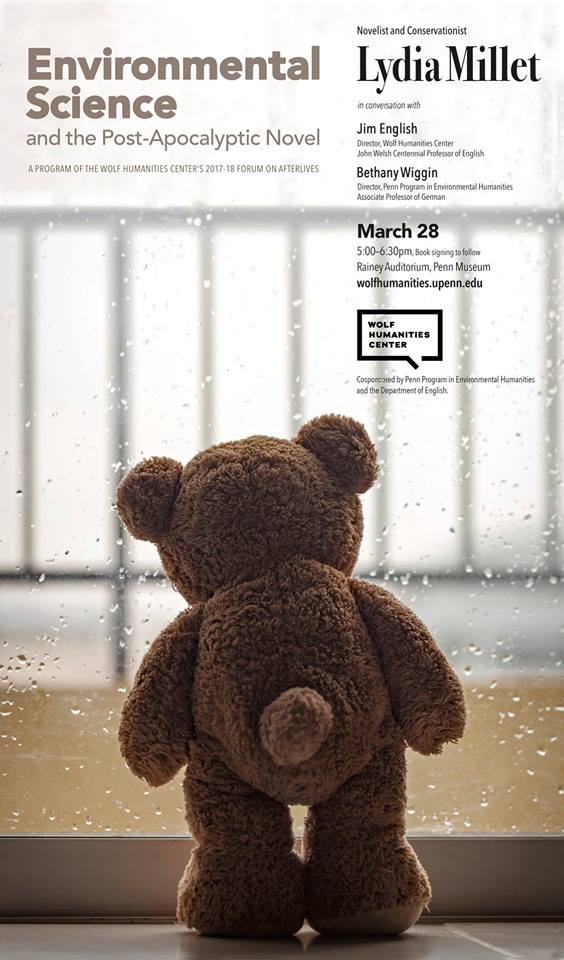Environmental Science and the Post-Apocalyptic Novel: Lydia Millet in Conversation with James English and Bethany Wiggin
Rainey Auditorium
Penn Museum

Environmental Science and the Post-Apocalyptic Novel
Lydia Millet
Novelist and Conservationist, Center for Biological Diversity
in conversation with
James English
Director, Wolf Humanities Center; John Welsh Centennial Professor of English
Bethany Wiggin
Founding Director, Penn Program in Environmental Humanities; Associate Professor of German
Cosponsored by the Penn Program in Environmental Humanities and the Department of English.
The prolific, unpredictable, award-winning novelist Lydia Millet manages also to lead a professional life as a conservationist at the Center for Biological Diversity. For the Forum on Afterlives, Millet will read from her latest work and discuss her unusual double role as scientist and novelist. In our era of ever more destructive climate change, are the themes of apocalypse and extinction migrating from science fiction into realism? How does Millet make room in her novels for so much humor and whimsy alongside their political and environmental horrors?

Lydia Millet is a novelist and short-story writer known for her dark humor, idiosyncratic characters and language, and strong interest in the relationship between humans and other animals. Sometimes called a "novelist of ideas," Millet won the PEN-USA award for fiction for her early novel My Happy Life (2002), and she has been a finalist for the Pulitzer Prize as well as a Guggenheim fellow, among other honors.
Millet’s writing has been described as “…flawlessly beautiful, reaching for an experience that precedes language itself.” Millet has written books and stories that range from the philosophical to the satirical, on matters including the inventors of the atom bomb, and political culture under George H.W. Bush.
As well as being a novelist, Millet holds a degree in environmental policy and works for the Center for Biological Diversity, an organization focused on protecting endangered species. She shares with Barbara Kingsolver a passionate worry about wildlife’s future: Her 2012 novel “Magnificence” features a bizarre museum of taxidermied extinct animals, and the mermaids in her “Mermaids in Paradise” (2014) are the last of their kind.
Born in Boston, Millet grew up in Toronto and now lives outside Tucson, Arizona with her two children, where she writes and works in wildlife conservation. Sweet Lamb of Heaven, a psychological thriller about a woman in hiding from her estranged husband, was published in May 2016.
